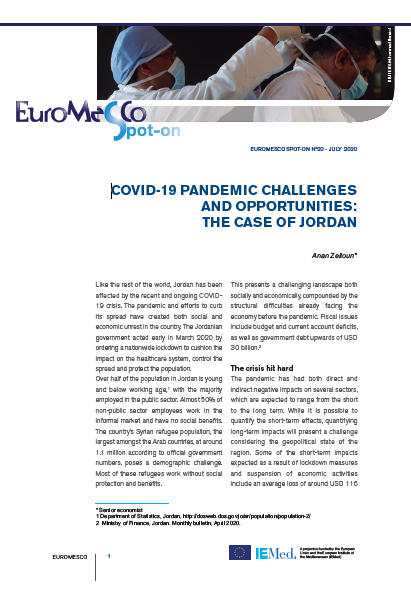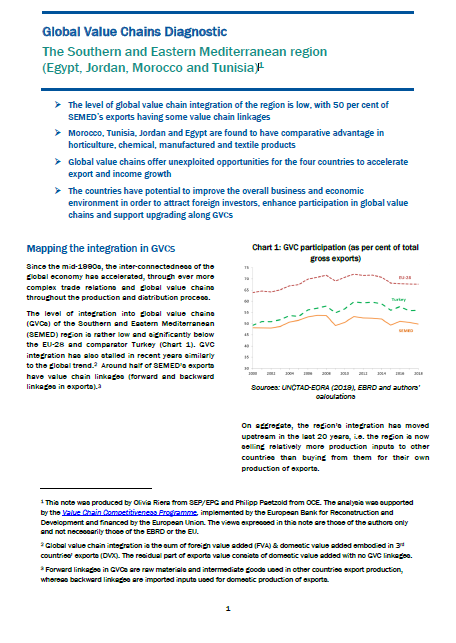Euromesco Spot-on 20 – COVID-19 Pandemic Challenges and Opportunities: The Case of Jordan

Like the rest of the world, Jordan has been affected by the recent and ongoing COVID-19 crisis. The Jordanian government acted early in March 2020 by ordering a nationwide lockdown to cushion the impact on the healthcare system, control the spread and protect the population.
Over half of the population in Jordan is young and below working age, with the majority employed in the public sector. Almost 50% of non-public sector employees work in the informal market and have no social benefits. The country’s Syrian refugee population, the largest amongst the Arab countries, at around 1.1 million according to official government numbers, poses a demographic challenge. Most of these refugees work without social protection and benefits.
This presents a challenging landscape both socially and economically, compounded by the structural difficulties already facing the economy before the pandemic. Fiscal issues include budget and current account deficits, as well as government debt upwards of USD 30 billion, according to the Ministry of Finance in Jordan.
Similarly to the rest of the world, Jordan has been affected by the pandemic. However, the response of local authorities has been highly competent and serves as an example and opportunity to re-shape the future of the country’s economy and its communities. This is an opportunity to start building for the future today and to leverage the momentum going forward.
Latest Publications
































 Syria
Syria 



